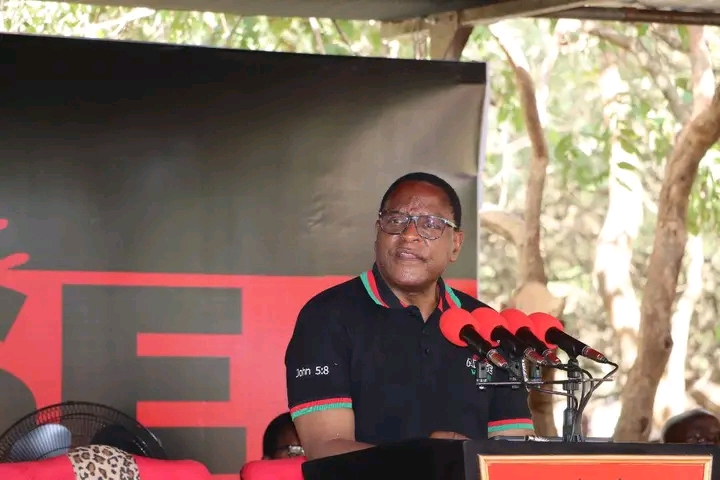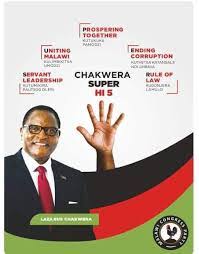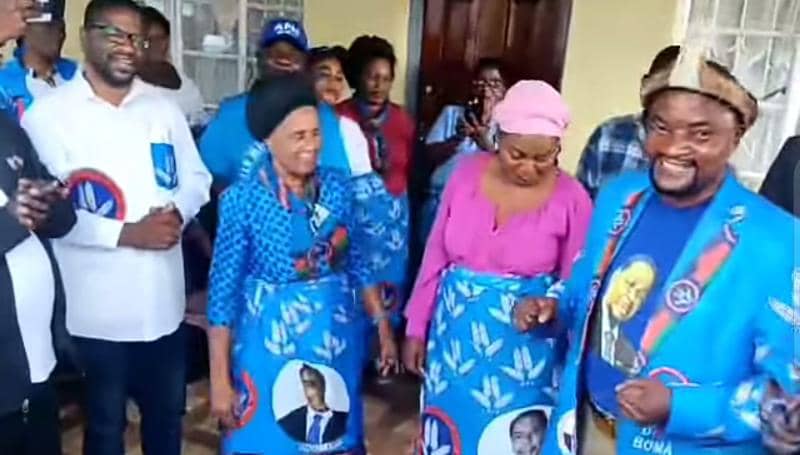By Jones Gadama
In the annals of Malawian history, the words of former President Bakili Muluzi resonate with a haunting clarity: the tendency of Malawians to forget their past atrocities is a perilous trait.
This observation is particularly poignant in the context of the current political landscape, where President Lazarus Chakwera, despite having inflicted significant damage upon the nation, appears to be positioning himself for another term in office. The question looms large: will the people of Malawi forget the injuries they have sustained under his leadership?
The answer, I contend, is a resounding no. The scars of Chakwera’s presidency are too deep, the memories too vivid, and the lessons too critical for the electorate to overlook.
To understand why Malawians are unlikely to forget the wounds inflicted by Chakwera, one must first consider the nature of political memory.
Political memory is not merely a collection of events; it is a tapestry woven from the experiences, emotions, and narratives of a people. In Malawi, the collective memory is shaped by a history of struggle, resilience, and a yearning for better governance.
The wounds of the past, whether from colonial rule, dictatorship, or economic mismanagement, have left an indelible mark on the national psyche. Malawians have learned to be vigilant, to scrutinize their leaders, and to hold them accountable for their actions.
Chakwera’s presidency began with great promise.
He was elected on a wave of hope, a beacon of change after years of disillusionment under the previous administration. However, as his tenure progressed, the reality of his governance began to diverge sharply from the expectations of the electorate.
Promises of economic revitalization, social justice, and good governance have been overshadowed by a series of missteps, failures, and, in some cases, outright betrayals of the public trust.
The economic hardships faced by ordinary Malawians have only intensified, with rising inflation, unemployment, and a lack of basic services becoming the norm rather than the exception.
The impact of these failures is not merely statistical; it is deeply personal.
Families have struggled to make ends meet, businesses have shuttered, and the social fabric of communities has frayed. The emotional toll of these experiences cannot be understated.
Malawians have witnessed their hopes dashed, their dreams deferred, and their lives made more difficult under a leadership that promised so much but delivered so little.
This collective suffering has forged a bond among the populace, a shared understanding that they have been wronged and that their grievances must not be forgotten.
Moreover, the political landscape in Malawi is characterized by a growing awareness and activism among the citizenry. The rise of social media and grassroots movements has empowered Malawians to voice their discontent and demand accountability.
The days of passive acceptance of political mismanagement are fading. Citizens are increasingly engaged, informed, and unwilling to tolerate the status quo.
This shift in political consciousness means that the electorate is more likely to remember the failures of their leaders, to hold them accountable, and to seek alternatives when the time comes to cast their votes.
Chakwera’s attempts to position himself for re-election in the face of such discontent may be seen as an affront to the very people he has let down. His administration’s failures are not merely a series of unfortunate events; they represent a betrayal of the trust placed in him by the electorate.
The notion that he could return to power, seeking to lead the very people he has wounded, is a concept that many Malawians will find difficult to accept.
The emotional scars left by his presidency are not easily erased, and the memories of hardship and disappointment will linger long after the political rhetoric fades.
Furthermore, the political landscape in Malawi is not static.
The emergence of new political players and movements has created a dynamic environment where alternatives to Chakwera’s leadership are not only possible but increasingly appealing.
The electorate is no longer confined to a binary choice between established parties; they are exploring new avenues for representation and governance.
This diversification of political options means that Chakwera’s path to re-election is fraught with challenges, as voters seek leaders who genuinely reflect their aspirations and address their grievances.
In addition to the political and economic factors at play, there is a cultural dimension to consider. Malawians have a rich tradition of storytelling, of passing down narratives that shape their identity and collective memory.
The stories of struggle, resilience, and triumph over adversity are woven into the fabric of Malawian society. These narratives serve as a reminder of the past and a guide for the future.
The experiences of the Chakwera presidency will undoubtedly become part of this narrative, a cautionary tale of what happens when hope is betrayed and trust is broken.
The emotional resonance of these stories cannot be underestimated.
They create a sense of solidarity among the populace, a shared understanding that transcends individual experiences.
When Malawians gather to discuss their political future, they will not only recount the promises made by Chakwera but also the pain of unmet expectations.
This collective memory will serve as a powerful motivator for action, driving voters to seek change and to reject the leadership that has caused them harm.
As the next election approaches, the question of whether Malawians will forget the injuries inflicted by Chakwera becomes increasingly relevant. The answer lies not only in the political landscape but also in the hearts and minds of the people.
The wounds of the past are not easily forgotten; they are etched into the collective consciousness of a nation that has endured much and learned valuable lessons along the way.
The desire for accountability, for justice, and for a better future will guide the electorate as they navigate the complexities of their political choices.
The notion that Malawians will forget the injuries inflicted by President Lazarus Chakwera is a miscalculation of the resilience and memory of a people who have faced adversity time and again.
The scars of his presidency are too deep, the memories too vivid, and the lessons too critical for the electorate to overlook.
As they prepare to make their voices heard in the next election, Malawians will carry with them the weight of their experiences, the stories of their struggles, and the hope for a brighter future.
Chakwera’s attempts to reclaim their trust will be met with skepticism, and the likelihood of his re-election diminishes in the face of a populace that refuses to forget the wounds of the past.
The journey toward healing and progress is fraught with challenges, but the collective memory of a nation will serve as a guiding light, illuminating the path toward a better tomorrow.




